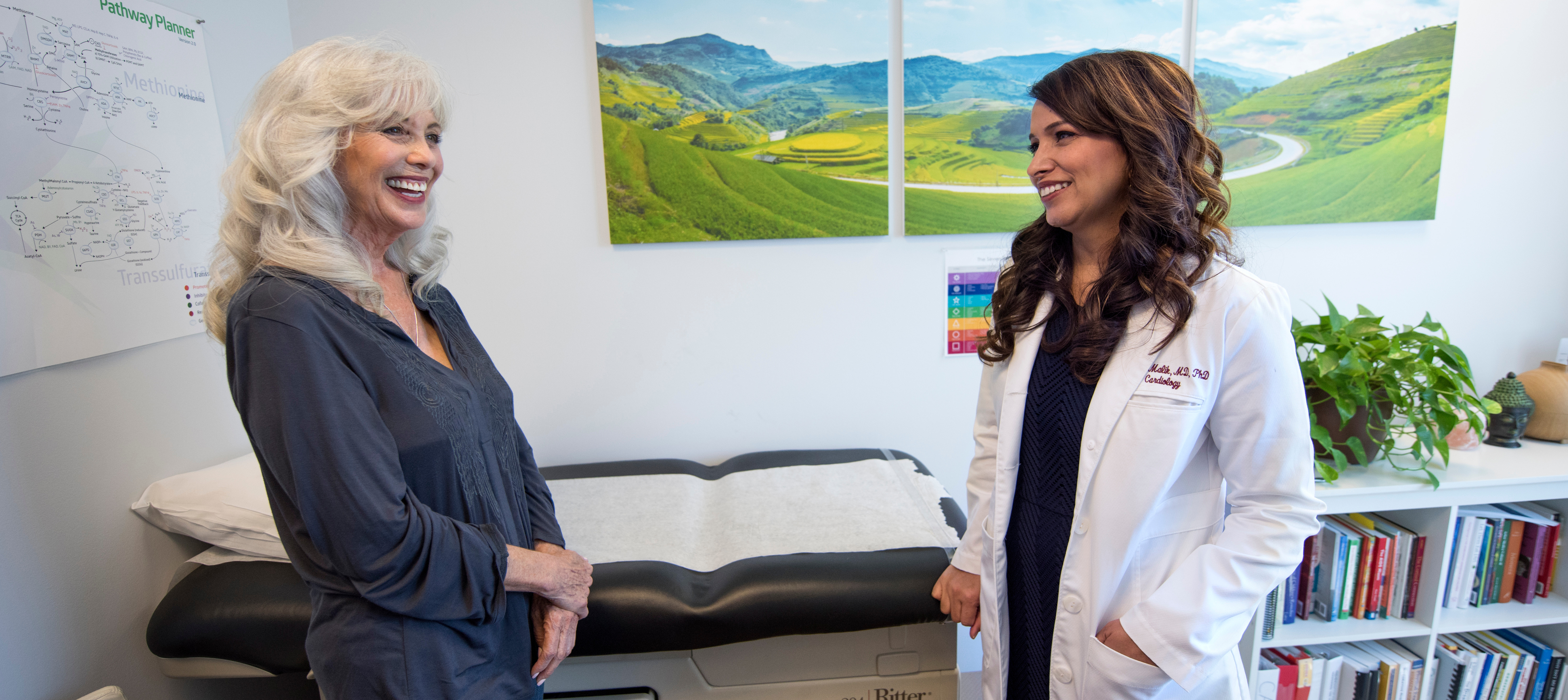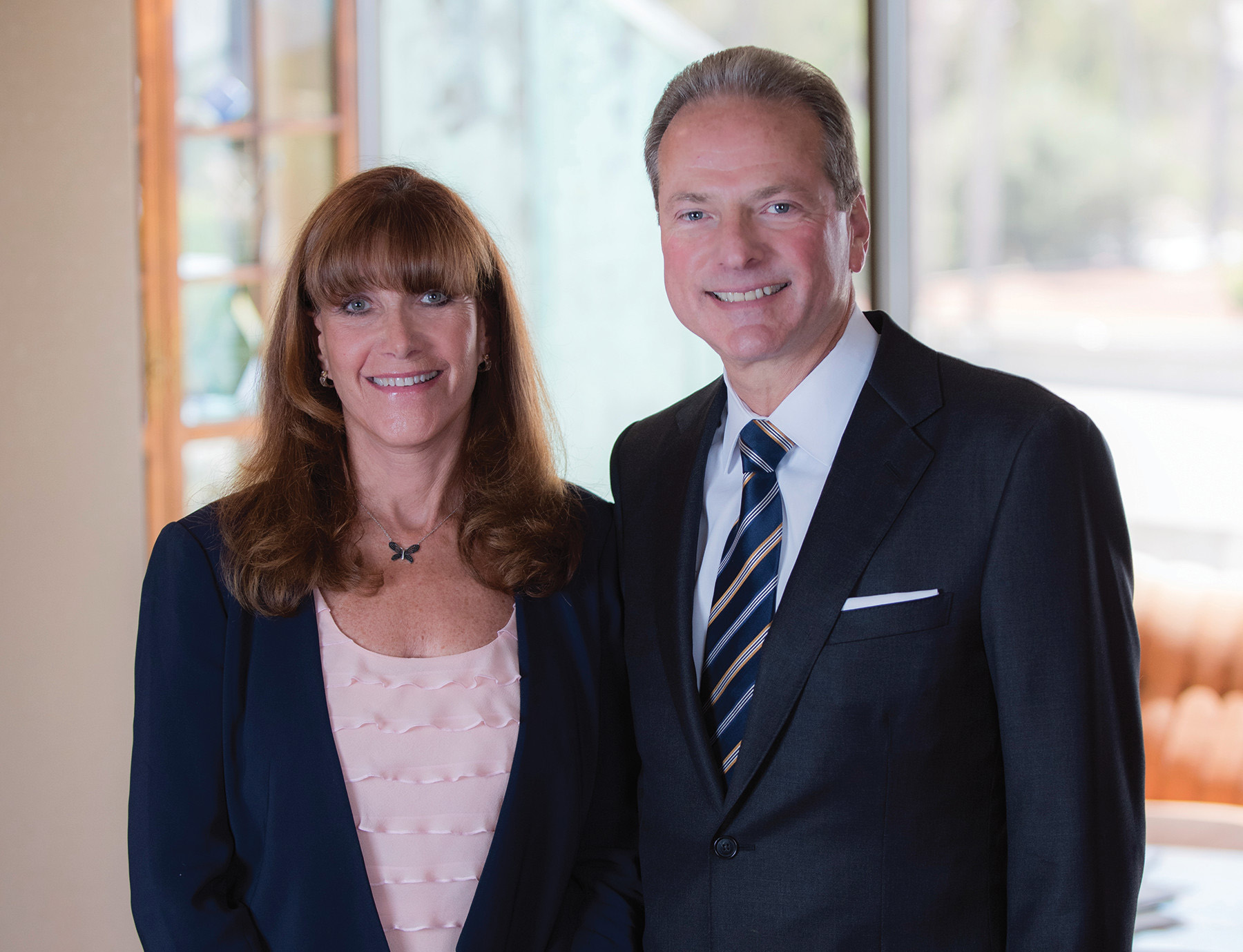A landmark $200 million gift from Susan and Henry Samueli aims to transform healthcare and UCI. Photo: UCI
A landmark $200 million gift from Susan and Henry Samueli aims to transform healthcare and UCI. Photo: UCI
For more than a year, UCI officials have been quietly hashing out a boundary-pushing proposal to reshape the campus and refashion healthcare in Orange County and beyond. It’s Western-meets-Eastern medicine, backed by scientific research and 21st-century technology.
The epicenter will rise on what is now a patch of weeds and rocks along the southwestern edge of campus, near the corner of Bison and California avenues. Thanks to a blockbuster $200 million gift to UCI from Broadcom co-founder Henry Samueli and his wife, Susan, a former holistic health practitioner, the parcel will soon metamorphose into a realigned College of Health Sciences. Named after the couple and anchored by the schools of Medicine, Nursing, Pharmacy and Population Health, the college hopes to pioneer an interdisciplinary, integrative approach to health that shifts the focus from treating ailments to averting them.
Although a number of top universities house integrative medicine units, UCI aims to be the first to have its entire health network adopt the strategy, which involves analyzing multiple aspects of a patient’s life – from genetics to emotions to environment – and then prescribing conventional as well as carefully vetted nonconventional therapies to promote wellness.
“The Samuelis’ dedication, their vision for what is possible and their deep generosity will help UCI set a standard that, over time, other health centers can follow.”
- Chancellor Howard Gillman
“We’re in the midst of a healthcare crisis, and out-of-the-box thinking is needed,” says Dr. Shaista Malik, a cardiologist who directs UCI’s longstanding Susan Samueli Center for Integrative Medicine, which will reemerge at the new location as the research-centric Susan Samueli Integrative Health Institute.
Of the $200 million pledge, $50 million – a sum to be matched by UCI – is earmarked for construction of a five-story, 100,000-square-foot Susan and Henry Samueli College of Health Sciences building, projected to open by 2021.
One-third of that space will be occupied by the Susan Samueli Integrative Health Institute, a hub for educational programs and research on nonconventional and complementary treatments, such as acupuncture to relieve pain and meditation to control stress.

Most of the remaining funds are pegged for an endowment to create integrative health scholarships and fellowships and 15 faculty research chairs. The new hires must devote at least half their time to the institute and will conduct cross-disciplinary research.
Malik agrees: “The science for many of these remedies isn’t there yet, except in bits and pieces. Our mission in the next 10 years is to research not only whether a method works, but how it works.” Among other things, that entails taking steps to rule out “placebo effects.”
Some students are already exploring integrative topics. Last fall, for instance, UCI’s medical school debuted an elective course in “culinary medicine.” To avoid having future doctors just vaguely advise patients to eat more healthfully, Malik says, this kitchen-based class arms them with recipes and nutrition research designed to aid people with diabetes and other maladies.

For family medicine residents, UCI recently launched an optional three-year integrative track that covers acupuncture, mineral supplements, traditional Chinese medicine and similar holistic cures. About two-thirds of the department’s physician trainees enroll.
“The Samuelis’ dedication, their vision for what is possible and their deep generosity will help UCI set a standard that, over time, other health centers can follow,” Gillman says.
Changes to UCI patient care, student instruction and research may be gradual, as the gift is set to be paid over eight years and the recruitment of 15 integrative health professors (six in medicine, three each in nursing, pharmacy and population health) figures to take a while.
“UCI is the perfect young campus to take this leap into the future,” says Susan Samueli, referring to the university’s culture of innovation and collaboration.